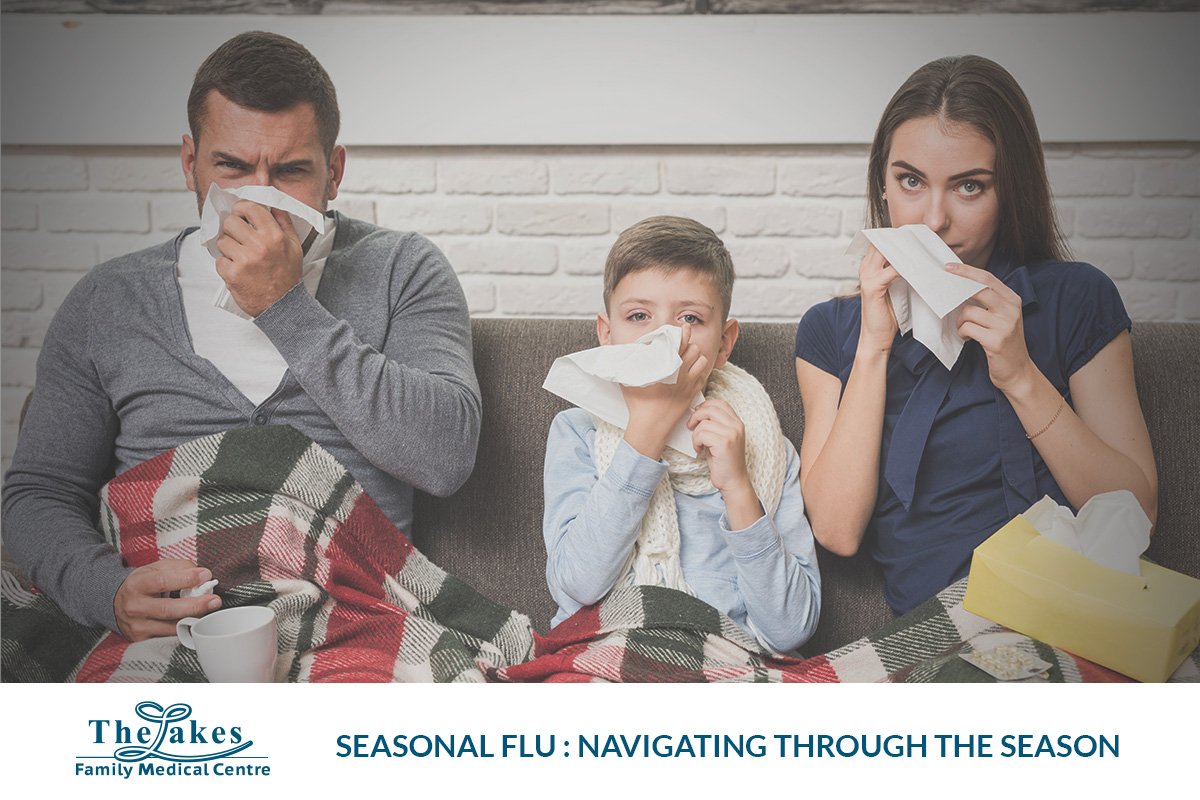
As the seasons change, the influx of the seasonal flu becomes a concern for communities worldwide. Characterized by symptoms such as fever, cough, sore throat, and muscle aches, the flu can range from mild to severe and is highly contagious. For General Practitioner (GP) clinics, this period demands heightened readiness to address the influx of patients seeking relief and treatment. This article provides essential tips and tricks for patients to navigate through the flu season, aimed at minimizing the spread and impact of the flu within communities.
🛡️ Understanding the Seasonal Flu
The seasonal flu is caused by influenza viruses that infect the nose, throat, and sometimes the lungs. It can cause mild to severe illness and at times can lead to hospitalization or death. The best way to prevent the flu is by getting vaccinated each year.
💉 The Importance of the Flu Vaccine
The annual flu vaccine is the first and most important step in protecting against seasonal flu viruses. Everyone 6 months of age and older should get a flu vaccine every season, with rare exceptions. Vaccination is particularly important for people at high risk of serious flu complications, including young children, pregnant women, people with chronic health conditions, and individuals 65 years and older.
🚫 Preventing the Spread of the Flu
- Hand Hygiene: Regular hand washing with soap and water for at least 20 seconds is crucial. If soap and water are not available, use an alcohol-based hand sanitizer.
- Respiratory Etiquette: Cover your mouth and nose with a tissue when you cough or sneeze, then dispose of the tissue safely. If a tissue isn’t available, cough or sneeze into your elbow, not your hands.
- Avoid Close Contact: Keep your distance from people who are sick. If you are sick, keep your distance from others to protect them from getting sick too.
- Stay Home: If you have flu symptoms, stay home for at least 24 hours after your fever is gone without the use of fever-reducing medicine.
🌡️ Managing Flu Symptoms
- Stay Hydrated: Drink plenty of fluids to stay hydrated.
- Rest: Ensure you get more rest to help your body fight the virus.
- Consult Your GP: If symptoms persist or worsen, consult your GP. They can prescribe antiviral drugs that can treat the flu, making the illness milder and shorter.
📅 Timing of the Flu Season
The timing of flu is unpredictable and can vary in different parts of the world and from season to season. Flu activity most commonly peaks between December and February but can last as late as May. Therefore, getting vaccinated early in the fall, before flu season really gets underway, is advised.
🌍 Travel During Flu Season
If you plan to travel during flu season, it’s wise to get vaccinated at least two weeks before your trip to ensure you have immunity. Carry hand sanitizer and disinfectant wipes to clean surfaces like airplane tray tables and hotel room doorknobs.
📚 Educating the Community
GP clinics play a vital role in educating the community about the flu. This can include providing informational brochures, hosting flu vaccination drives, and using social media to spread awareness about flu prevention techniques.
🌟 Conclusion
Navigating through the flu season requires a collective effort from individuals, healthcare providers, and communities. By taking preventive measures such as getting vaccinated, practicing good hygiene, and consulting with healthcare professionals when necessary, we can minimize the impact of the seasonal flu. Remember, your actions can protect not just you but also those around you from the flu. Let’s all commit to a healthier flu season.
Embark on whole year with a commitment to your health. At The Lakes Family Medical Centre, we’re here to guide you every step of the way. Together, let’s make this year your healthiest yet! Head to Hotdoc and book an appointment,, Start with personalised healthcare!
Learn more about The Lakes Family Medical Centre :




